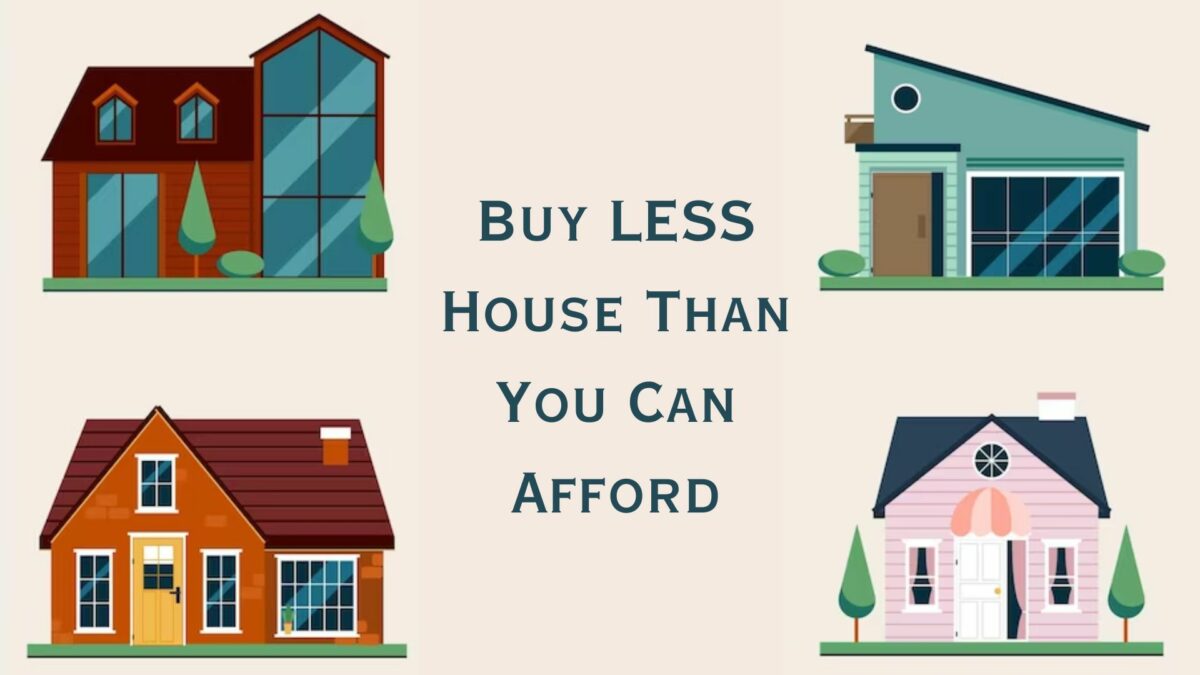“The mansion should not be graced by its master, the master should grace the mansion.”
–Marcus Tullius Cicero
“I think maybe ten years from now, I’m hopefully going to be, in like, Tahiti or something. Kicking back like in my huge mansion, if everything goes right, it’s all up to me.”
–Corey Haim

When my wife and I were looking to make our first house purchase, we consistently heard one refrain: “Buy more house than you need.” The advice-givers provided us with many reasons, including “when you have kids, you’ll be glad you had the room” (umm…we aren’t having kids), and “real estate always goes up.”
Here’s what happens when you think that real estate only goes up
We found a very large house which, fortunately, was being sold by a builder going into bankruptcy, so we got it at a fire sale price. As a couple with no children, we did not need five bedrooms. There were rooms which we didn’t see for months. Colonies of moles could have sprouted up there and we would have never known.
In hindsight, we were lucky. We got out at the top of the market and moved into a two bedroom condo, slashing the living space in half. At that point, our outcome was a result of about 25% smart planning and 75% luck, and I might be overestimating the smart planning, at least on my part.
While, I don’t espouse the 100 square foot lifestyle, there is something to be said for buying less house than you think that you need.

- Empty rooms attract furniture. You usually have to buy that furniture. Having no empty rooms means you don’t buy furniture to fill the empty rooms.
- You become less attached to stuff. When you don’t have very much room to put stuff, you tend to either get rid of it, or you don’t accumulate it in the first place. People tend to value experiences over things anyway.
- Kids aren’t entitled to their own rooms. It forces them to live together, to share, to work harmoniously, and to learn how to co-exist.
- It could encourage you to go out more. I don’t mean to go out to restaurants, but to get out from your tight living space. Be outdoors. Explore. See the world. Get out from in front of the TV. With a small enough space, you might not even have room for the TV.
- You spend less on utilities and maintenance. Those empty rooms will also get heated and cooled like the rest of the place. Things break. Smaller houses cost less to keep up compared to bigger houses. Yes, I know…some huge revelation there!
- Fewer of your financial assets are tied up in housing. If you have a smaller place, chances are pretty good that it’s cheaper too. That’s more of your assets which can be used for investing. You can also trade off size for location and not get bitten as badly. See “Why Do You Think Your Wealth is in Your Home?” for more.
When we downsized, we auctioned off two moving trucks full of stuff. We’d been married for less than five years, three of which I was in graduate school; yet, we’d accumulated a museum full of things. When we sold everything, I felt like a burden had gone away from us. By forcing ourselves to stay small, we’ve kept that burden from settling back down on our shoulders.
So, when it’s time to move, ask yourself if you can live in a place with a few hundred less square feet than you thought. It’ll be tight, but it will loosen up your house’s hold on your purse strings.
What do you think? Is your house too big or too small? Tell us about it in the comments below!
Author Profile
- John Davis is a nationally recognized expert on credit reporting, credit scoring, and identity theft. He has written four books about his expertise in the field and has been featured extensively in numerous media outlets such as The Wall Street Journal, The Washington Post, CNN, CBS News, CNBC, Fox Business, and many more. With over 20 years of experience helping consumers understand their credit and identity protection rights, John is passionate about empowering people to take control of their finances. He works with financial institutions to develop consumer-friendly policies that promote financial literacy and responsible borrowing habits.
Latest entries
 Low Income GrantsSeptember 25, 2023How to Get a Free Government Phone: A Step-by-Step Guide
Low Income GrantsSeptember 25, 2023How to Get a Free Government Phone: A Step-by-Step Guide Low Income GrantsSeptember 25, 2023Dental Charities That Help With Dental Costs
Low Income GrantsSeptember 25, 2023Dental Charities That Help With Dental Costs Low Income GrantsSeptember 25, 2023Low-Cost Hearing Aids for Seniors: A Comprehensive Guide
Low Income GrantsSeptember 25, 2023Low-Cost Hearing Aids for Seniors: A Comprehensive Guide Low Income GrantsSeptember 25, 2023Second Chance Apartments that Accept Evictions: A Comprehensive Guide
Low Income GrantsSeptember 25, 2023Second Chance Apartments that Accept Evictions: A Comprehensive Guide

